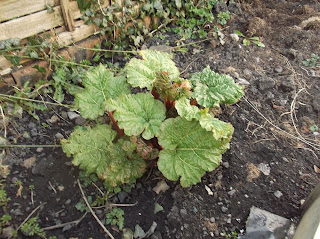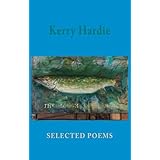Someone suggested that my Eurydice Rising Sequence was so complicated and illusive that I should write a whole essay on the romance and ballad tradition, so I have. I’d be interested in comments from anyone who knows about it.
The Orpheus Tradition
The classical story of Orpheus is simple and well-known – Orpheus’ beloved wife is stolen by Hades, and dies. Orpheus goes to the underworld to rescue her and plays so well that he is allowed to take her back, so long as he does not look behind to see if she is following him. He does look back, and she is lost forever, and Orpheus, distraught, is killed by Maenads because he refuses to play for them. It is told in many cultures and many formats, from Boethius’ allegorical understanding of Eurydice as Soul, beguiled into Hell by the pleasures of the senses, rescued by Orpheus as Reason, but lost through his weakness and want of dedication, to Offenbach’s irreverent satire on marriage and conventional thinking, in which both Orpheus and Eurydice are glad of the opportunity to set up with someone new. Everyone seemed to have their own take on what was happening, whether like the Orphic cultists, they believed that Orpheus had established the belief in life after death, or like Ovid, that he was the first homosexual.
What fascinated me most of all as I got to know more about the tradition, was that as the story was dispersed and retold, many versions did not end with tragedy. As the story moved north, it happened more and more that Orpheus actually got Eurydice back.
In the Breton lai, Sir Orfeo, Orpheus is both a knight and a king of England. His wife Herodys (I did recently hear an undergraduate without any classical background pronounce Eurydice like this – it made my day) is kidnapped by the King of Fairy as she slept under an ‘ympe tree’. This is a grafted tree, distrusted because such tampering with nature was thought to be unnatural. In medieval times such a tree was believed to leave anyone who slept there vulnerable to the otherworld, and the image of a grafted tree was sometimes used, as Perdita does in A Winters Tale to symbolise a lack of integrity. Orfeo is so distraught with grief that he leaves the court and goes into the wilderness for ten years – a ritual time of trial called a ‘moniage‘ . In Moniage 1 I have referred to the best known example of moniage in medieval English literature – the obscure but charming poem Maiden on the Mor Lay.
At the end of the ten years, Orfeo sees the a hunting party and discovers that it is the Wild Hunt (slua sidh in Irish folk tales) – the Fairy people on an expedition to the everyday world. Oddly enough, he does not recognise who these people are, but is reawakened to his own identity by remembering his former hunting days. He sees Herodys among the court, but she is not able to respond to him, and he follows the hunt into an underground world filled simultaneously with horrific visions of lost people, those dead by misadventure, or women dead in childbirth, murder victims, and lunatics – people who ‘are thought dead and are not’ – and beautiful visions of the wealth and luxury of a royal palace. He sees Herodys both sleeping under her tree, and as a queen dressed in gold at a banquet.
Orfeo performs as a minstrel and is promised whatever he likes as a reward. When he names Herodys, the King questions his fitness to marry her, but acknowledges that he has to be bound by his word, and he places no obstacle placed in the way of Herodys’ return. When Orfeo returns to Winchester to reclaim his throne, he disguises himself as a beggar to test his steward’s loyalty, and his welcomed out of loyalty to the absent king. The story ends with both marriage and kingdom restored, and the steward rewarded.
The Shetland ballad, King Orfeo, although similar in many ways, is a more simple ‘fairy-taken’ story which draws on the Celtic bardic tradition. The king of Ferry pierces King Orfeo’s wife Isabel with a ‘dart’ and takes her away with him. Orfeo pursues them, but they disappear, leaving only a grey stone – the traditional gateway to the other world. He plays his pipes and is invited inside. Once there he demonstrates his expertise in the three modes of music expected of a bard : Goltraighe, ‘the weeping strain’, here called ‘da notes o’ noy’; or lament, Geantriaghe, ‘the laughing strain’, here called ‘da notes o’ joy’, or dance music; and Suantraighe, and ‘the sleeping strain’ or lullaby, which the ballad describes as ‘da god gabber reel/dat meicht ha made a sick hert hale’. In Irish tradition the suantraighe makes anyone who is awake fall asleep, and anyone who is sick becomes well. He claims, and is granted Isabel as his reward, and on his return, not only his wife but his kingdom is restored to him.
The many symbolic values encompassed by Eurydice, who represents soul, conscience, maturity, muse and social identity, as well as lover, and the different outcomes gave me a lot to play with. It gave me the opportunity to see Orpheus as many different artists – Seamus Heaney, Ted Hughes, Mick Jagger, Bob Dylan, Thomas the Rhymer and Gerald Way from the emo-band My Chemical Romance. I could use the multi-layered tradition to examine the use of poetry – and art in general; the role of an artist in society, the way an artist integrates – or fails to integrate – the practice of his art with his personal life, the nature of love, and the very odd relationship between artist and muse. The old-fashioned exclusive language here is deliberate. Women, particularly women of my generation, negotiate this terrain differently – maybe I should try a Rumpelstiltskin or a Baba Yagar sequence next time!
In my version, Eurydice is not dead or stolen by fairies;she is mad, and she and Orpheus are locked in a co-dependent relationship which may or may not destroy both of them. Whether either one of them gets out of hell depends on Orpheus’ willingness to come to a sound understanding of who he is, and set Eurydice free.
This might be a good time to acknowledge the influence of my supervisor way back when I did my MLitt. Felicity J Riddy is not only a brilliant medievalist, but was also a wonderful teacher and mentor. And she wrote an essay on Sir Orfeo (The Uses of the Past in Sir Orfeo published in the Yearbook of English Studies vol6 1976) which started me on my interest in the Orpheus tradtion








